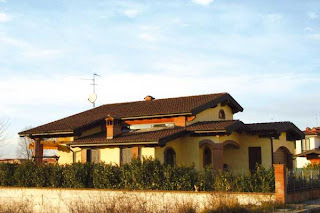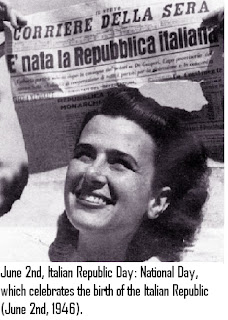"Risorgimento" refers to the historical period in which the Italian nation sought and obtained its national unity (officially in 1861) joining together the kingdom of Italy and the pre-unification States.
In 1861 Italy was a united country, what about the Italians?
Despite the unification there was still a gap between the North and the South. Here capitalist farmers didn't exist and intensive cultivation wasn't spread, hence much of the fields were planted with cereals. The industrial sector was fairly developed (especially in Salerno and Naples) and protected by high tariff barriers. After the adoption of Piemonte's customs tariffs, which were much lower, the sector collapsed. This gap is still present today, it doesn't mereley concern economics but also culture and traditions. This is the main limitation of our country, but at the same time, our wealth, beacause regional diversity is typical of Italy.
As a saying goes "Italy is a nation of poets, saints and seamen"
But are we just like this?!?
Of course not! As time passed, the Italians devoted to other activities, achieving significant results in culture, art, entertainment, technology and scientific research.
LET'S COMBAT ILLITERACY!
One of the problems that a united Italy had to face was illiteracy. Tha first step was taken with the "Coppino Law" as until 1876 illiteracy hadn't worried the rulers of our country. The rate of literacy inreased, althought it remained much lower than that of the most developed countries in Europe, and it was scarce in the southern regions.
-The first educational programs were approved in 1860, they sought to ensure basic cultural literacy for the entire population.
-Around 1900 positive effects started to be seen, illiteracy decreased but a new phenomenon came out: intellectual unemployment.
Primary school laws
1859 - Casati Law: the Legge Casati (Casati Act) mandated educational responsibilities for the forthcoming Italian state. The Casati Act made primary education compulsory, and had the goal of reducing illiteracy. This law gave control of primary education to the single towns, of secondary education to the provincie (counties), and the universities were managed by the State. Even with the Casati Act and compulsory education, in rural (and southern) areas children often were not sent to school (the rate of children enrolled in primary education would reach 90% only after 70 years) and the illiteracy rate (which was near 80% in 1861) took more than 50 years to halve.
1878 - Coppino Law: it required free public education through the third grade
1878 - Coppino Law: it required free public education through the third grade
1911 - Daneo-Credaro Law: fees for primary schools passed from the municipalities to the State.
1923 - Gentile's Reform: it was a radical reform of the Italian educational system carried out by the neo-idealist philosopher Giovanni Gentile, Minister of Education in Benito Mussolini's first cabinet. It officially recognized 21 universities in Italy.
The main parts of this reform were:
-The compulsory age of education was raised to 14 years, and was somewhat based on a ladder system: after the first five years of primary education, one could choose the "scuola media", which gave further access to the "liceo" and other technical schools, or the "avviamento al lavoro", which was intended to give a quick entry into the low strata of the workforce.
-Gentile created the "liceo classico" (intended to be the peak of secondary education, with the goal of forming the future upper classes), the only secondary school that gave access to all types of university. Gentile also created technical, commercial and industrial institutes.
ITALY:
From a country of emigrants (the major migratory movements took place between the end of XIX century and the Great War and then after the Second World War in the '50s and '60s) towards America, Germany, Belgium, France...
A WINDOW ON HOUSES
THEN
Between 1800 and 1900 lifestyle was not that good as it was marked by a succession of wars that led to the destruction and impoverishment of households.
NOW
A WINDOW ON CLOTHES
THEN 1800-1900:
AND NOW
ITALY IN THE WORLD
The key sectors of Italian industry are:
ITALIAN PUBLIC HOLIDAYS
VIVA L’ITALIA – FRANCESCO DE GREGORI
(Viva l’Italia – 1979)
Viva l'Italia, l'Italia liberata,
l'Italia del valzer, l'Italia del caffè.
L'Italia derubata e colpita al cuore,
viva l'Italia, l'Italia che non muore.
Viva l'Italia, presa a tradimento,
l'Italia assassinata dai giornali e dal cemento,
l'Italia con gli occhi asciutti nella notte scura,
viva l'Italia, l'Italia che non ha paura.
Viva l'Italia, l'Italia che è in mezzo al mare,
l'Italia dimenticata e l'Italia da dimenticare,
l'Italia metà giardino e metà galera,
viva l'Italia, l'Italia tutta intera.
Viva l'Italia, l'Italia che lavora,
l'Italia che si dispera, l'Italia che si innamora,
l'Italia metà dovere e metà fortuna,
viva l'Italia, l'Italia sulla luna.
Viva l'Italia, l'Italia del 12 dicembre,
l'Italia con le bandiere, l'Italia nuda come sempre,
l'Italia con gli occhi aperti nella notte triste,
viva l'Italia, l'Italia che resiste.
Viva l'Italia, l'Italia liberata,
l'Italia del valzer, l'Italia del caffè.
L'Italia derubata e colpita al cuore,
viva l'Italia, l'Italia che non muore.
Viva l'Italia, presa a tradimento,
l'Italia assassinata dai giornali e dal cemento,
l'Italia con gli occhi asciutti nella notte scura,
viva l'Italia, l'Italia che non ha paura.
Viva l'Italia, l'Italia che è in mezzo al mare,
l'Italia dimenticata e l'Italia da dimenticare,
l'Italia metà giardino e metà galera,
viva l'Italia, l'Italia tutta intera.
Viva l'Italia, l'Italia che lavora,
l'Italia che si dispera, l'Italia che si innamora,
l'Italia metà dovere e metà fortuna,
viva l'Italia, l'Italia sulla luna.
Viva l'Italia, l'Italia del 12 dicembre,
l'Italia con le bandiere, l'Italia nuda come sempre,
l'Italia con gli occhi aperti nella notte triste,
viva l'Italia, l'Italia che resiste.
http://www.youtube.com/watch?v=k60i0es8gb0
Written by:
Alessandra Bonetti
Anna Bonetti
Giulia Savoldi



































Excellent!
ReplyDelete